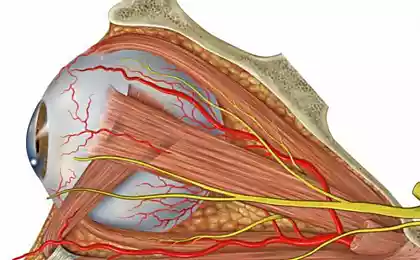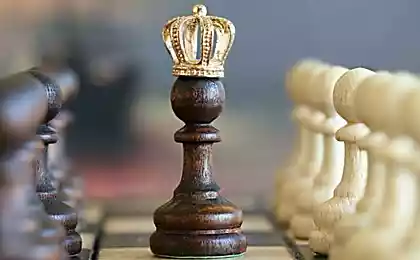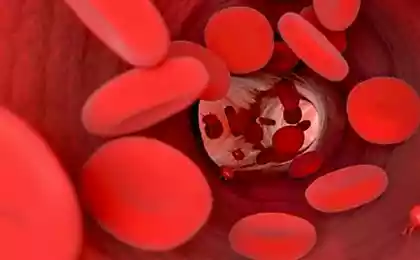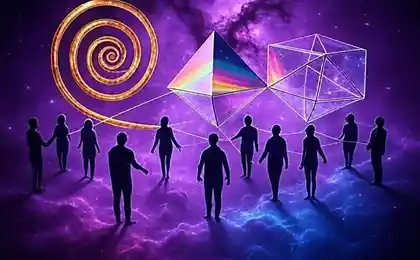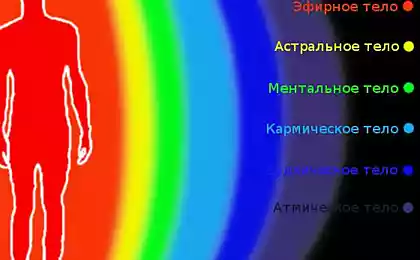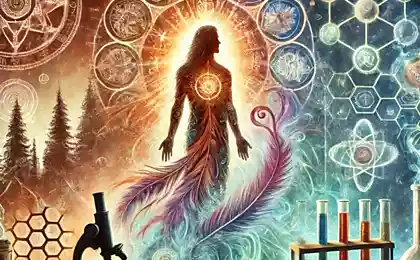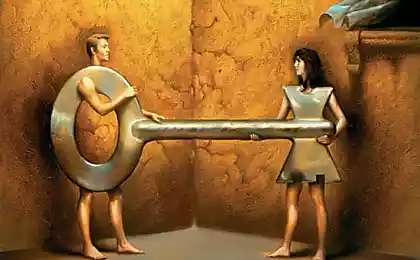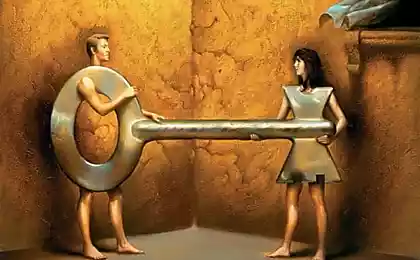431
10 unsolved mysteries of man
Sixty three million two hundred seventy seven thousand nine hundred twelve
"Girl with a pearl earring" is one of the most famous paintings by the Dutch artist Johannes Vermeer
Surprisingly, modern science still perplex some features of our physiology and psyche. The British popular science magazine New Scientist has made a rating of the inexplicable.
1. THE ABILITY TO SHAME
Scientists believe one of the greatest gaps in the theory of evolution the lack of a coherent explanation of why people, once in an awkward position or being caught in a lie, you begin to blush. Thereby sending a clear signal to others: here I am before you — a liar, a scoundrel, a deceiver. But why? There is only a vague assumption. Like, sending the paint on the face, nature makes people less lie. And red liar sends to the group around him individuals a signal of willingness to apologize. This reduces the level of aggression and makes other people more likely to forgive the guilty. Perhaps the ability to blush helped people at the dawn of evolution to reduce aggression in society. Who knows, maybe now helps?
2. LAUGHTER
Still not clear what causes a person to have fun. After all, the sense of humor at all totally different. The assumption of scientists: laughter is necessary for balancing of mental processes. For example, in order to dampen the excitement, tension and sorrow. Because laughter creates a real "biochemical storm" — natural produces intoxicating substances — endorphins, antidepressants. No wonder the English have a proverb: "Teach me to laugh — save my soul."
3. INTIMATE HAIR
In the course of evolution man has lost almost all his hair. But why preserve a special thickening of pubic hair? Because this area is most susceptible to parasitic infections. The assumption of scientists: most likely, they were for sex. Because pubic hairs grow in the place where there is more accumulation of iron and the corresponding odor. And her hair — this product is to be sprayed and to endure the smell. Thus, the tufts of hair that kind serve as a means of "advertising".
4. THE DESIRE TO CREATE WORKS OF ART
People simply cannot create the beautiful. It is pleasing to the eye. But, as a rule, devoid of any utilitarian purpose. And why? The assumption of scientists: the beauty of let indirectly, but still helps people to create more high-quality utilitarian objects. For example, a comfortable living environment people perceive more as aesthetically appealing. And uncomfortable — as ugly. Creating art, a person trains your brain, which in the process improved to solve pure and applied problems. And it may have been the rights of Leo Tolstoy, who wrote: "...the word one person transfers their thoughts, art people pass each other their feelings."
5. SUPERSTITION
The rational sense in superstitions, no. But they are there. Paradox? The assumption of scientists, the pot life will take based on remembering the successes and forgetting the troubles. We are very superstitious when we had some difficulties. Because of the dark thoughts worse we are in control of their actions and made new mistakes. And then all blamed on black cat. If the person bypasses the cat, then give yourself installation that all will be well. It's kind of a placebo.
6. ALTRUISM
It is a unique human function is to live for others — laid down in the brain. Already at 18 months infants start to show altruistic behavior. That speaks to the innate friendliness of the man. But what makes people help not even family and without benefit to themselves? The assumption of scientists: altruism is required when choosing a partner. Both men and women. Dedication to others makes a person more attractive to the opposite sex. The development of the human brain has made parenting a very complex process, and therefore for our ancestors it was important to choose a partner that is able to become a good and devoted parent. Manifestations of self best point on this ability, so the genes associated with altruism, could be preserved in the process of evolutionary selection.
7. HABIT TO PICK YOUR NOSE
Harmful like the activity — from the nostrils pulled out tiny hairs that help filter dust and dirt from the air we breathe. But picking your nose everyone who secretly, who publicly. From children to adults. The assumption of scientists: the sense, perhaps, not hidden in the actual process, and its result. For many more, and eat his boogers. Disgustingly? By no means. Some researchers seriously believe that this is a good way to strengthen the immune system. Along with the kisses. And at the dawn of evolution, again, he could be the only one. When kissing was not with anyone. Because the nose filters out large number of various bacteria. Once in the stomach, this "mixture" works as a universal vaccine for many diseases. Abuse is just not necessary. In addition, American psychologists say, that finger massage of the nasal mucosa full of different receptors, improves brain activity.
8. KISS
How and why did the tradition of kissing why received sexual, no one knows for sure. Although hypotheses fully. But what's most reasonable? The assumption of scientists: maybe a kiss in its original basis — this is a unique way of vaccination, invented by nature. Because saliva contains a variety of bacteria. 80% of them are the same for all people, and 20% individual. When you kiss, these bacteria are transmitted from person to person. In the mouth they cause a revival of other microorganisms, giving the boost to the immune system and triggering the formation of antibodies.
9. PROLONGED ADOLESCENCE
Even our closest relatives — the great apes there is no such a long transition from adolescence to adulthood. Puberty occurs in chimpanzees about 5 years when their childhood ends. People also the so-called puberty lasts from 11 to 20 years. Why? The assumption of scientists: puberty is later than the historical acquisition of humanity. The duration of puberty depends on the level of development of society. The higher it is, the wider the band between the end of puberty and the onset of final maturity.
10. SLEEPS
Once our ancestors there was a solid belief that during sleep the human soul temporarily leaves his body to wander the world. And we dream what she sees in his travels. Later, Sigmund Freud argued that dreams are a reflection of our unconscious desires. But today, most researchers reject it. But then why do we need them?
The assumption of scientists: dreams appear in our brain due to chaotic electrical activity. Almost every 90 minutes the brain stem randomly circulates throughout the brain electrical impulses. The forebrain, which is responsible for analytical work, desperately tries to understand these signals. And the only way to organize them is to watch dreams. They do not carry any messages. But not quite so meaningless. How our fore brain selects certain moments of a continuous stream of pictures, can reveal our essence. In addition, dreams, likely contribute to the transition the day received information from short-term to long-term memory. Published
P. S. And remember, only by changing their consumption — together we change the world! ©
Source: mirfactov.com/
"Girl with a pearl earring" is one of the most famous paintings by the Dutch artist Johannes Vermeer
Surprisingly, modern science still perplex some features of our physiology and psyche. The British popular science magazine New Scientist has made a rating of the inexplicable.
1. THE ABILITY TO SHAME
Scientists believe one of the greatest gaps in the theory of evolution the lack of a coherent explanation of why people, once in an awkward position or being caught in a lie, you begin to blush. Thereby sending a clear signal to others: here I am before you — a liar, a scoundrel, a deceiver. But why? There is only a vague assumption. Like, sending the paint on the face, nature makes people less lie. And red liar sends to the group around him individuals a signal of willingness to apologize. This reduces the level of aggression and makes other people more likely to forgive the guilty. Perhaps the ability to blush helped people at the dawn of evolution to reduce aggression in society. Who knows, maybe now helps?
2. LAUGHTER
Still not clear what causes a person to have fun. After all, the sense of humor at all totally different. The assumption of scientists: laughter is necessary for balancing of mental processes. For example, in order to dampen the excitement, tension and sorrow. Because laughter creates a real "biochemical storm" — natural produces intoxicating substances — endorphins, antidepressants. No wonder the English have a proverb: "Teach me to laugh — save my soul."
3. INTIMATE HAIR
In the course of evolution man has lost almost all his hair. But why preserve a special thickening of pubic hair? Because this area is most susceptible to parasitic infections. The assumption of scientists: most likely, they were for sex. Because pubic hairs grow in the place where there is more accumulation of iron and the corresponding odor. And her hair — this product is to be sprayed and to endure the smell. Thus, the tufts of hair that kind serve as a means of "advertising".
4. THE DESIRE TO CREATE WORKS OF ART
People simply cannot create the beautiful. It is pleasing to the eye. But, as a rule, devoid of any utilitarian purpose. And why? The assumption of scientists: the beauty of let indirectly, but still helps people to create more high-quality utilitarian objects. For example, a comfortable living environment people perceive more as aesthetically appealing. And uncomfortable — as ugly. Creating art, a person trains your brain, which in the process improved to solve pure and applied problems. And it may have been the rights of Leo Tolstoy, who wrote: "...the word one person transfers their thoughts, art people pass each other their feelings."
5. SUPERSTITION
The rational sense in superstitions, no. But they are there. Paradox? The assumption of scientists, the pot life will take based on remembering the successes and forgetting the troubles. We are very superstitious when we had some difficulties. Because of the dark thoughts worse we are in control of their actions and made new mistakes. And then all blamed on black cat. If the person bypasses the cat, then give yourself installation that all will be well. It's kind of a placebo.
6. ALTRUISM
It is a unique human function is to live for others — laid down in the brain. Already at 18 months infants start to show altruistic behavior. That speaks to the innate friendliness of the man. But what makes people help not even family and without benefit to themselves? The assumption of scientists: altruism is required when choosing a partner. Both men and women. Dedication to others makes a person more attractive to the opposite sex. The development of the human brain has made parenting a very complex process, and therefore for our ancestors it was important to choose a partner that is able to become a good and devoted parent. Manifestations of self best point on this ability, so the genes associated with altruism, could be preserved in the process of evolutionary selection.
7. HABIT TO PICK YOUR NOSE
Harmful like the activity — from the nostrils pulled out tiny hairs that help filter dust and dirt from the air we breathe. But picking your nose everyone who secretly, who publicly. From children to adults. The assumption of scientists: the sense, perhaps, not hidden in the actual process, and its result. For many more, and eat his boogers. Disgustingly? By no means. Some researchers seriously believe that this is a good way to strengthen the immune system. Along with the kisses. And at the dawn of evolution, again, he could be the only one. When kissing was not with anyone. Because the nose filters out large number of various bacteria. Once in the stomach, this "mixture" works as a universal vaccine for many diseases. Abuse is just not necessary. In addition, American psychologists say, that finger massage of the nasal mucosa full of different receptors, improves brain activity.
8. KISS
How and why did the tradition of kissing why received sexual, no one knows for sure. Although hypotheses fully. But what's most reasonable? The assumption of scientists: maybe a kiss in its original basis — this is a unique way of vaccination, invented by nature. Because saliva contains a variety of bacteria. 80% of them are the same for all people, and 20% individual. When you kiss, these bacteria are transmitted from person to person. In the mouth they cause a revival of other microorganisms, giving the boost to the immune system and triggering the formation of antibodies.
9. PROLONGED ADOLESCENCE
Even our closest relatives — the great apes there is no such a long transition from adolescence to adulthood. Puberty occurs in chimpanzees about 5 years when their childhood ends. People also the so-called puberty lasts from 11 to 20 years. Why? The assumption of scientists: puberty is later than the historical acquisition of humanity. The duration of puberty depends on the level of development of society. The higher it is, the wider the band between the end of puberty and the onset of final maturity.
10. SLEEPS
Once our ancestors there was a solid belief that during sleep the human soul temporarily leaves his body to wander the world. And we dream what she sees in his travels. Later, Sigmund Freud argued that dreams are a reflection of our unconscious desires. But today, most researchers reject it. But then why do we need them?
The assumption of scientists: dreams appear in our brain due to chaotic electrical activity. Almost every 90 minutes the brain stem randomly circulates throughout the brain electrical impulses. The forebrain, which is responsible for analytical work, desperately tries to understand these signals. And the only way to organize them is to watch dreams. They do not carry any messages. But not quite so meaningless. How our fore brain selects certain moments of a continuous stream of pictures, can reveal our essence. In addition, dreams, likely contribute to the transition the day received information from short-term to long-term memory. Published
P. S. And remember, only by changing their consumption — together we change the world! ©
Source: mirfactov.com/




